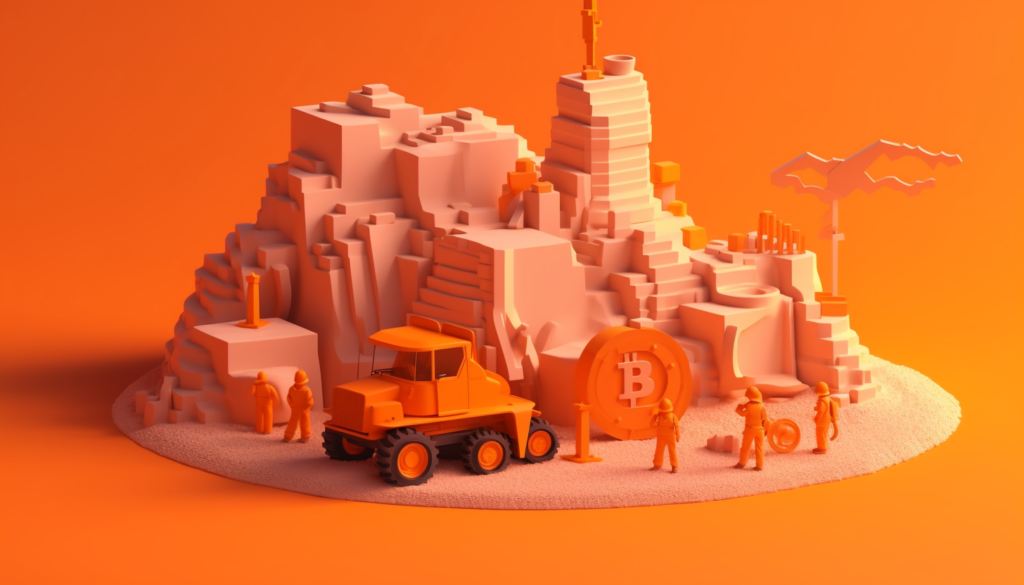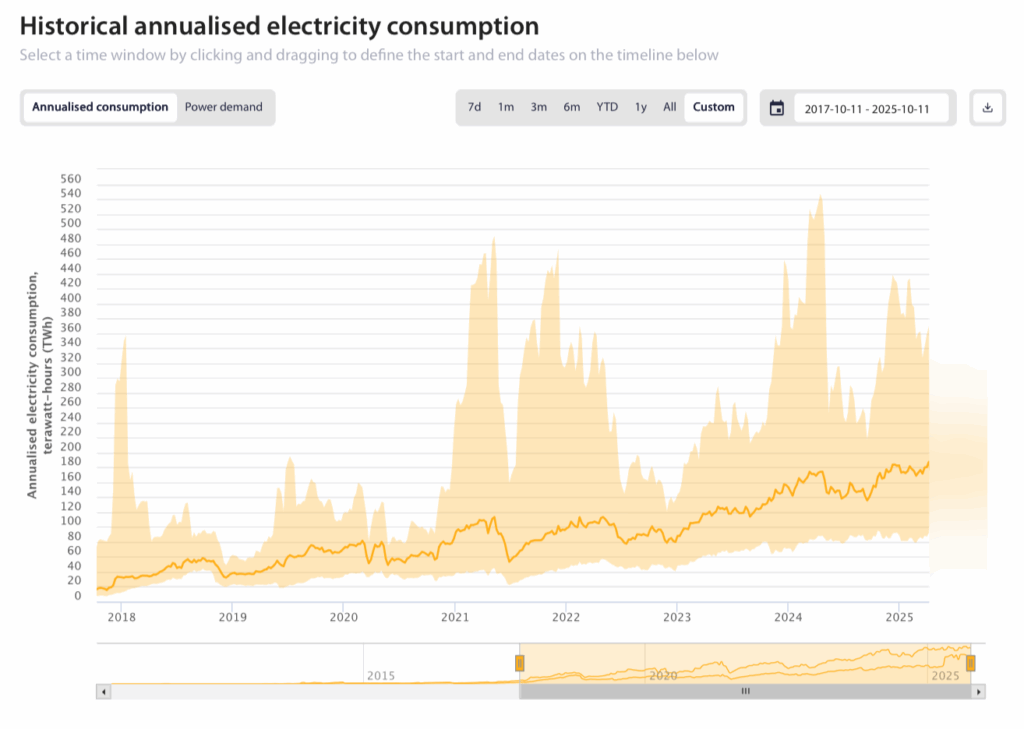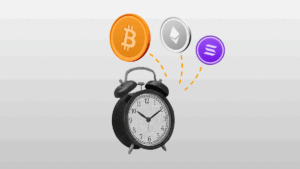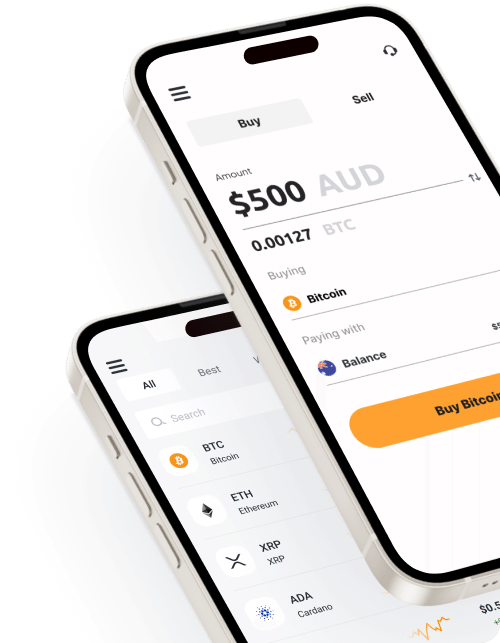
Today we’re diving into the digital mines of the crypto world and aim to decode the process of mining Bitcoin. This is a crucial process to understand before deciding to buy Bitcoin. Like how traditional mining unearths valuable resources like gold or diamonds, Bitcoin miners using their computational powers mine Bitcoins. The fluctuations in Bitcoin’s price have been closely tied to the rise and fall of its mining activities. Here, we’ll walk you through how Bitcoin miners verify transactions, the rewards they get, and why this process is critical to the digital currency ecosystem.
Table of Contents:
- What is Bitcoin Mining?
- How Does Bitcoin Mining Work?
- How to Mine Bitcoin
- Can I Mine Bitcoin at Home?
- Things to consider before starting to mine Bitcoin at home
- Important Bitcoin Mining Terms
- FAQ
What is Bitcoin Mining?
Diving deep into the heart of the Bitcoin network, you’ll find the intriguing process known as Bitcoin mining. It often raises a string of questions – “Is Bitcoin mining legal?” “What does it take to become a Bitcoin miner?” In essence, Bitcoin mining refers to the process of validating new transactions and incorporating them into the Bitcoin blockchain. Bitcoin transactions are bundled into ‘blocks,’ and miners add these blocks to the existing blockchain in a way that’s secure and maintains integrity.
How Does Bitcoin Mining Work?
The Bitcoin mining process isn’t unlike a vast, intricate lottery where computational power equals tickets. Miners leverage a system called proof of work to solve complex mathematical problems, effectively earning the right to add a block to the Bitcoin blockchain. This is a race, and the more computational power you have (or the more tickets you hold), the higher your chances of winning.

How to Mine Bitcoin:
1. Get a Bitcoin Wallet:
First and foremost, you’ll need a secure place to store your hard-earned Bitcoins. Consider this as akin to setting up a bank account before starting your first job.
2. Choose a Mining Hardware:
Selecting the right mining hardware is a crucial decision that will influence your mining activities. Mining equipment or ‘rigs’ vary widely in terms of their hash rate (or computational power). It’s similar to choosing a vehicle – you could go for a sturdy, reliable workhorse or a high-powered sports car, depending on your budget and needs.
3. Join a Mining Pool:
Joining a Bitcoin mining pool is akin to teaming up with fellow gold miners to increase your collective chances of striking gold. A mining pool combines the computational power of its members, thereby increasing their collective chances of adding a block to the Bitcoin network. More miners in a pool mean more computational power, increasing the chances of earning mining rewards.
4. Download a Mining Software:
Mining software is the tool that links your hardware to the Bitcoin network and the mining pool. Think of it as the software that operates your digital pickaxe, digging into the blockchain to unearth precious Bitcoins.
5. Configure Your Mining Software:
Correctly configuring your mining software is the final and essential step. This is akin to ensuring your pickaxe is sharp, your lantern is lit, and you’re ready to delve into the Bitcoin mine.
Can I Mine Bitcoin at Home?
With the arrival of powerful, affordable mining rigs and cloud mining services, it is indeed possible for individual enthusiasts to mine Bitcoin from the comfort of their own homes. However, remember that joining a Bitcoin mining company or pool might significantly increase your chances of success.
Things to Consider Before Starting to Mine Bitcoin at Home:
1. Cost of Hardware:
Mining costs, primarily driven by the price of the mining hardware, are often a significant hurdle for many aspiring miners. High-powered ASICs (Application Specific Integrated Circuits) are the standard tool for mining but come with a hefty price tag, reflecting their immense computational power.
2. Energy Consumption:
A significant factor in the cost-benefit analysis of Bitcoin mining is energy consumption. Operating mining hardware can consume large amounts of electricity, so consider local electricity costs when calculating potential mining profits.
3. Mining Difficulty:
The process of mining Bitcoin involves solving increasingly difficult mathematical problems. As more miners join the network, these problems become more complex, making it harder for individual miners to successfully mine a block.
Important Bitcoin Mining Terms:
- Hash Rate: This term refers to the speed at which a mining machine operates.
- Block Rewards: This is the number of Bitcoins awarded to a miner upon successfully adding a block to the blockchain.
- Mining Rig: A dedicated computer system used for mining Bitcoins.
- Mining Pool: A group of miners who combine their computational power to increase their chances of mining a block.
- Blockchain: The digital ledger where all Bitcoin transactions are recorded and stored.
FAQ:
Is Bitcoin mining profitable?
Yes, Bitcoin mining can be profitable, but it largely depends on several factors. The cost of the hardware needed, the cost of electricity in your area, the current price of Bitcoin, and the mining difficulty all play a part in determining profitability. Think of it like starting a business: you have start-up costs (the mining hardware), ongoing expenses (electricity), and revenue (the Bitcoins you mine). If your revenues exceed your expenses, then you’re making a profit. However, do remember that the price of Bitcoin can be highly volatile, and the difficulty of mining increases over time, which can affect your profitability.

Does crypto mining damage your GPU?
Cryptocurrency mining, including Bitcoin, can indeed put a lot of strain on your Graphics Processing Unit (GPU). This is because mining involves solving complex mathematical problems, which requires a lot of computational power. Imagine your GPU as a powerful marathon runner. If it’s made to sprint continually, without rest, it may wear out sooner. Proper cooling and monitoring can extend the life of your GPU, but it’s still likely to wear out faster than it would with normal use.
How can I calculate my Bitcoin mining profitability?
To calculate your Bitcoin mining profitability, you’ll need to consider the cost of your mining hardware, the cost of electricity in your area, the current price of Bitcoin, and the difficulty of mining. There are several online Bitcoin mining calculators available that can help you with this. Think of it like calculating the profitability of a lemonade stand: You consider the cost of lemons, sugar, and water (your mining hardware and electricity) and the price you can sell the lemonade for (the Bitcoins you mine).
How Long Does it Take to Mine 1 Bitcoin?
The time it takes to mine one Bitcoin depends on the power of your mining hardware and the current difficulty of mining. With a standard home mining rig, it could take years to mine a single Bitcoin. It’s like trying to find a rare diamond in a large mine using just a pickaxe – it requires time, patience, and a good bit of luck.
Can anyone mine Bitcoin?
Yes, anyone with access to the internet and the necessary hardware can mine Bitcoin. However, because the difficulty of mining has increased significantly since the early days of Bitcoin, it’s not as easy or profitable for individuals to mine Bitcoin as it once was. In many cases, it’s like trying to compete with a large corporation with your small home-based business. It’s possible, but challenging.
Why mine Bitcoin?
First, it’s a way to earn Bitcoin without having to buy it with traditional currency. Second, mining helps secure the Bitcoin network by verifying transactions, a key part of the decentralised nature of the cryptocurrency. It’s a bit like being paid to be a security guard for an enormous virtual bank. Finally, for some, the challenge of mining is a reward in itself – it’s a bit like solving a massive, ongoing digital puzzle.
The journey to becoming a Bitcoin miner can be both challenging and rewarding, but with the right tools, knowledge, and perseverance, you can navigate the intricate tunnels of the cryptocurrency world. Happy mining!



